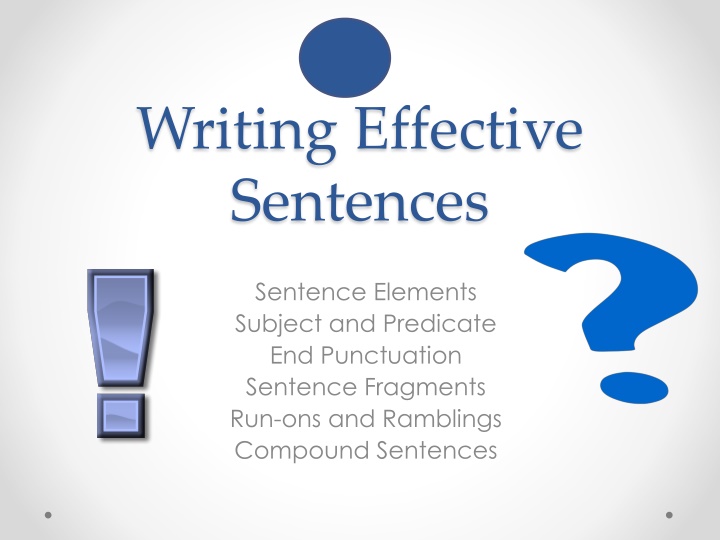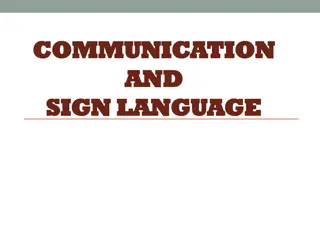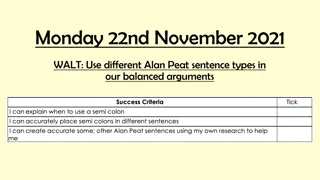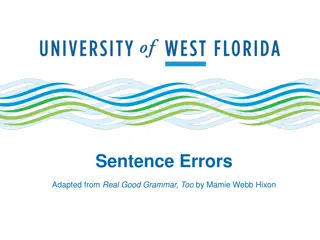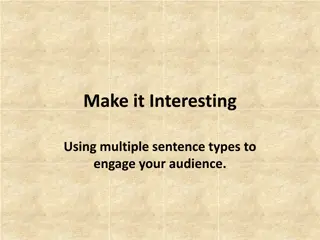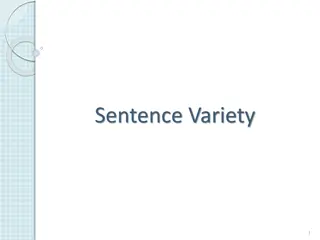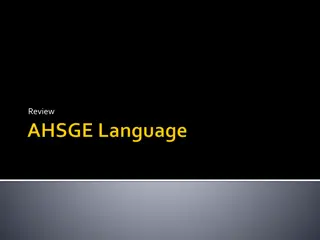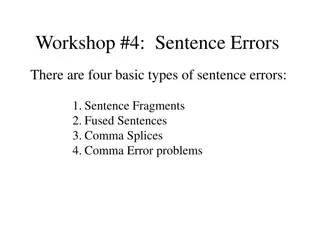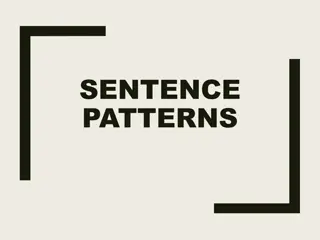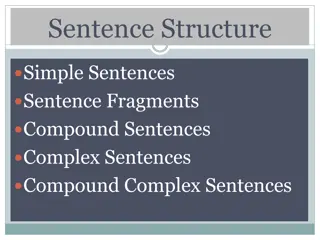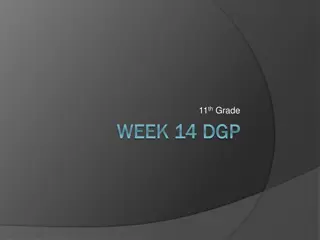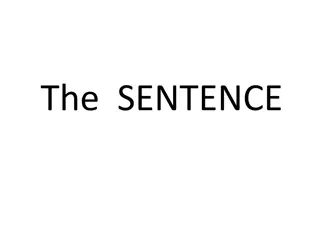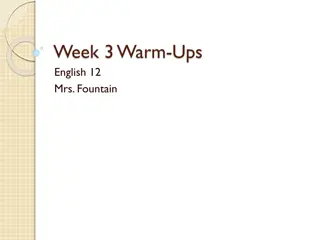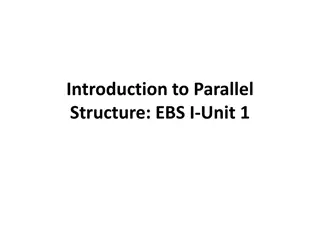Mastering Sentence Structure for Effective Communication
Understanding sentence elements such as subject, predicate, end punctuation, fragments, and compound sentences is crucial for crafting clear and concise writing. A sentence must express a complete thought, start with a capital letter, and end with appropriate punctuation. Recognizing and avoiding fragments, run-ons, and ramblings ensures coherent writing. Mastering sentence structure leads to compelling and impactful communication.
Download Presentation

Please find below an Image/Link to download the presentation.
The content on the website is provided AS IS for your information and personal use only. It may not be sold, licensed, or shared on other websites without obtaining consent from the author.If you encounter any issues during the download, it is possible that the publisher has removed the file from their server.
You are allowed to download the files provided on this website for personal or commercial use, subject to the condition that they are used lawfully. All files are the property of their respective owners.
The content on the website is provided AS IS for your information and personal use only. It may not be sold, licensed, or shared on other websites without obtaining consent from the author.
E N D
Presentation Transcript
Writing Effective Sentences Sentence Elements Subject and Predicate End Punctuation Sentence Fragments Run-ons and Ramblings Compound Sentences
Compound Sentences
Sentence Elements: What makes a sentence? A complete sentence is a group of words that expresses a complete thought. A sentence starts with a capital letter. A sentence ends with a period, an exclamation point, or a question mark. A sentence must have a subject, which tells who or what is doing something. A sentence must also have a predicate, a verb or verb phrase that tells what the subject is doing. Complete Thought (Sentence): My cousin trains hard for every sport he plays. Incomplete Thought (Not a Sentence) A volunteer in a bright blue uniform.
Subject and Predicate: Two Important Parts! The complete subject of a sentence is who or what is doing something. Our new coach likes to keep us late after practice. My teammates and I work hard at practice. The complete predicate, a verb or verb phrase, tells what the subject is doing or what is being done to the subject. Our assistant coach carries a clipboard to practice everyday. A parent volunteer brings water, oranges, and energy bars.
End Punctuation: The Big and Powerful Punctuation Marks Declarative and Imperative sentence end with a period. Examples: I am looking forward to the movie. Go find your glasses. Interrogative sentences ask a question and end with a question mark. Example: Will we get there in time? Exclamatory Sentences show strong emotion or feeling and end with an exclamation point. Example: We are not going to make it!
Sentence Fragments: Something is Missing! A fragment is an incomplete sentence that is missing a subject, a predicate, or both. Examples: Not a healthy snack. Mark and his friends from school. All the other kids.
Run-ons and Ramblings: Is it ever going to end? Run-on sentences are two or more sentences that run together. Example: The pet show was fun the crowd loved all of the dogs. A rambling sentence occurs when several sentences are connected with conjunctions such as and, or, but, and so. Example: I knew that Maya s parrot would get an award and I also thought that Lem s cat would win something but I was not so sure that Jenn s dog would do well.
Compound Sentences A compound sentence is made up of two simple sentences joined together with a comma and a coordinating conjunction. Coordinating conjunctions: for and nor but or yet so Examples: My family wanted to plan a trip to Florida, but I am not a fan of hot weather. We could hike up Mount Washington, or we could drive up on the summit road.
